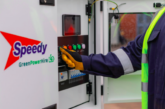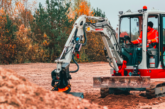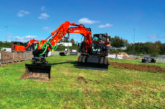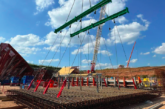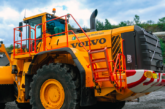Many industries will be affected when red diesel loses its tax-free status in April 2022.
With less than six months to go until red diesel users will be charged the full fuel tax to reflect on the emissions they produce, the MHM Group is urging industry leaders to adopt the use of cleaner alternatives, in particular HVO (Hydrotreated Vegetable Oil).
Red diesel is widely used in the agricultural, marine and construction sectors, and although at present business owners benefit from a 47p-per-litre tax rebate for its use, as of April 2022 they will have to switch to ordinary ‘white’ diesel costs, taxed at the full rate. That means many businesses will be paying five times as much in fuel duty as they do currently.
In the wake of rising costs and significant impacts on the environment, a market leading equipment manufacturer, the MHM Group is urging businesses within the plant hire and construction industries to consider switching to HVO fuel as a greener, more sustainable alternative.
HVO is a premium quality fuel made from 100% renewable raw materials, and can reduce CO₂ emissions by up to 90% when likened with fossil-fuel diesel. Every 1,000 litres of diesel burned produces 3.6 tonnes of greenhouse gas CO2, compared to just 195kg GHG CO2 for every 1,000 litres of HVO burned.
The MHM Group has itself recently confirmed that all of its diesel-powered machinery, principally generators and lighting towers, are now fully compatible, approved and safe for use with HVO fuel.
Commenting on how the rental market can reduce its carbon footprint, the MHM Group’s Managing Director Mat Llewellyn said: “Everyone in the industry has been aware that green changes are on the horizon, but often these deadlines come up much faster than we first anticipate. For that reason, we have been doubling down on our efforts to ensure that Bolt, our new equipment for sale and our rehire fleet becomes more sustainable and that we can offer solutions to the construction sector on eliminating harmful carbon emissions.
“Using HVO is significant a part of this process and becomes even more important with the tax rises to red diesel and the growing consensus on the need for action to address climate change. We are also continuing to invest heavily in other renewables, such as solar and battery hybrid engine and diesel free machines, as part of our comprehensive approach to a sustainable future.”


